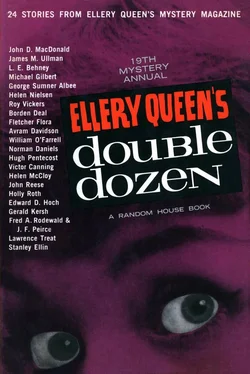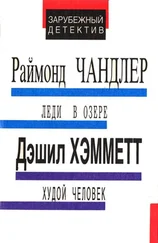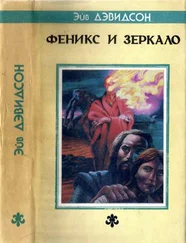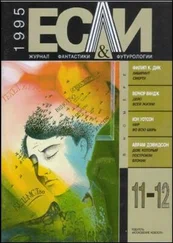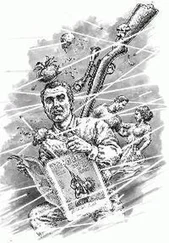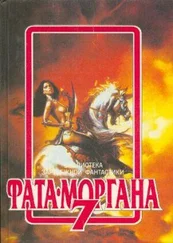“ Si, it was night.”
Mike made a rapid calculation. “You mean you’ve been standing here in this damned sun for seven hours?”
“Si.”
“Well, look now,” Mike said, shaking his head, “seven hours in this sun... you’re sure I can’t give you a lift?”
“I cannot ride. I am a—”
“Yeah, I know. I know. Well, what can I do to help you? You can’t stay here, not in this heat.”
“You could give me a pull?”
“You mean a tow? With my car?”
“Si.”
“Sure, I guess so. But can you make it into this town, this Rio Escondido?”
“Si.”
“Okay,” Mike said, shaking his head.
He crossed to the car and opened the trunk compartment. Taking out a chain he hooked it onto his bumper; then he carried the other end over to the old man. “I’ve got to fasten this onto your bumper,” he said.
The old man held out his hands and grasped the end of the chain that Mike handed him.
“Now when the chain straightens out, when it gets tight, be sure to move. You could get hurt. Understand?”
“ Si. My wheels work fine, but slow. I am an old station wagon.”
“Okay, easy does it then.”
Mike returned to the convertible, climbed behind the wheel, and started the engine. Keeping his eye on the old man through the rear-view mirror, he let the car roll forward taking up the slack in the chain, and as the chain grew taut, the old man clambered out of the ditch.
Mike drove, shifting his gaze back and forth from the rear-view mirror to the speedometer. Only occasionally did he glance at the road ahead.
The old man seemed to be doing fine. He held the end of the chain tightly in his hands.
Mike felt more relaxed now. He hoped he wasn’t asking for trouble by believing in the old man, by trying to help him. The old coot seemed harmless enough, and he felt a certain responsibility for him. Why? Why?
They had gone about a quarter of a mile when a sharp turn in the road revealed the town some distance ahead.
Rio Escondido? Rio meant river. But Escondido?
He dredged the word up from the past, from high-school.
Hidden. Hidden River. If the drainage ditch were any indication, it would be a river of rich red dust.
The mesquites gave way to cornfields. A farmer still grubbed in his field, though it was time for the siesta. The old man behind the car was moving awkwardly but steadily along. A spotted goat at the side of the road bleated.
Adobe dwellings of different shapes and sizes were becoming more and more frequent. They were now in what would be the city limits of Rio Escondido. There appeared to be a municipal building of some sort down one of the side streets, but for the most part there were only adobe houses and places of business, nearly all of them cantinas.
The only signs of life were an old dog lying under a wringer-type washing machine tilted against the side of a house and two half-naked children playing at bullfighting in the afternoon sun.
One boy, his hands tight against his head, two fingers projecting outward like horns, charged a mincing torero, who called, “Huh, huh, toro! Huh, toro!” then executed a perfect veronica with a faded rebozo as the bull swept past.
But at the sight of the old man and the convertible, the torero and the bull became children again and followed them down the street calling, as near as Mike could make out, “Hey, Pepe! Hey! Give us a ride in your station wagon!”
They passed what looked to Mike like the village market, but except for a listless wave from one of the attendants, they went unnoticed.
It was a quiet town.
Mike stuck his head out of the car and called back, “Hey, old man, where do you get your gasoline?”
Still clutching the chain, the old man lifted both hands and pointed down the street. “El Perro Negro!”
Mike followed the gesture with his eyes and saw the words painted in orange and blue on the side of an adobe cantina.
El Perro Negro. The Black Dog. What a wonderful name for a bar! Like most Spanish names, it lost nothing in translation.
Mike braked the convertible to a stop in front of the cantina. Cutting his engine, he got out and walked back to the old man.
“Well, we made it,” he said. “Let’s unfasten the chain.” He took the chain, and the old man let go. Disengaging the hook from the bumper of the convertible, Mike threw the chain into the trunk compartment. The old man didn’t move.
“Isn’t this where you get your gas?” Mike asked.
“Si.”
“I get it — you’re waiting for service. Who waits on you?”
“Juan.”
“Okay, I’ll send him out mucho pronto .”
“Gracias, señor. Gracias! ”
Mike crossed the unpaved street toward the batwing doors of El Perro Negro, but stopped just short of the board sidewalk. “Well, I’ll be damned!” he said and put a hand on a shiny, new parking meter stuck in the loose dirt. Looking along the street he saw two rows of parking meters, but not a single car — nor could he remember having seen one since entering the village.
But why hadn’t he noticed the parking meters before? Probably because he was too busy looking out for the old man. And what the hell were parking meters doing in a town too poor to afford pavement? Or street lights, for that matter?
“Damn!” he said under his breath and stepped through the batwings of El Perro Negro. Pausing just inside, he let his eyes adjust to the gloom. He could make out a bar on the right, and he crossed the room toward it, stumbling over a chair, but managing to catch it before it hit the floor. Reaching the bar, he sat down near a large man in uniform.
A fat man with a towel tied around his waist was behind the bar, and Mike addressed him. “¿Habla usted inglés, señor?”
The bartender nodded and pulled at his walrus mustache.
“You are Juan?” Mike asked.
“I am Juan,” the bartender answered.
“There’s a station wagon out front that needs gas, and I need some coins for the meter.”
“Did you hear, Carlos?” Juan said to the man in uniform. “It is Pepe!”
Carlos. That would be the official who wouldn’t give the old man a license.
Carlos shrugged his massive shoulders. “Si,” he said, “it is Pepe.”
The bartender took a bottle of tequila from behind the bar and was almost to the door when Carlos’ voice stopped him. “You should not, my friend Juan,” he said. “You should not give Pepe gasoline. He is no station wagon.”
Juan turned without speaking and stepped through the batwings into the glare of the street.
Carlos sighed heavily and looked at the tequila bottle in front of him. With his heavy right arm he swept a saltcellar and a small bowl of cut limes into position beside the bottle.
“What’s wrong with the old man?” Mike asked.
Carlos licked the top of his left hand below the first joint of the thumb and poured salt on it. “Old Pepe?” he said. “Five years ago he was hit by a station wagon in Monterrey. Now he is a station wagon.”
“And everyone believes him?”
“Si. They say he has been touched by the hand of God.”
“And you? Do you believe he is a station wagon?”
Carlos licked the salt, drank from the bottle of tequila, bit and sucked the lime. “Me? I believe that he was hit by a station wagon. It is wrong to let him believe he is a vehicle. It does him no good. But the people will not understand. It is different in your country. But here the people believe in such things.”
“How does he live? Who takes care of him?”
Читать дальше
